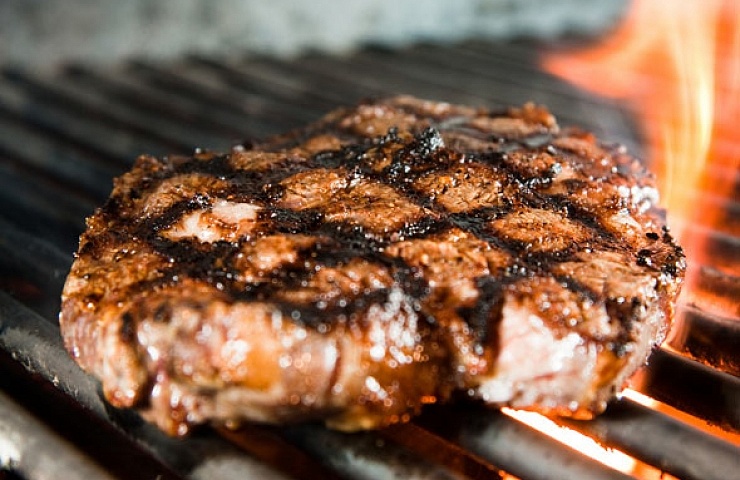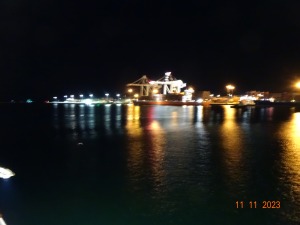
A night alongside as we waited for the wind to drop –
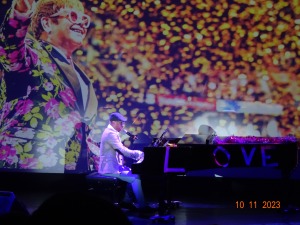
We had the entertainment in the evening Drew Levi Huntsman who sang and played music from Elton John & Billy Joel, but mainly Elton John.
Saturday was supposed to be alongside in Fremantle (11th November) but we didn’t go alongside until around 8.00 pm on the 11th. Best laid plans etc – we had arranged to meet friends on the 11 th for lunch, but fortunately we were able to contact them about the delay.
The following day being Sunday meant that the local shops in Fremantle would not be opening until 11.00 am and we were to meet our friends at 11.30 am.
BUT there was a silver lining the Sunday Market was open.
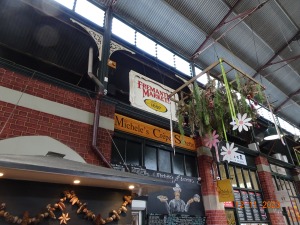
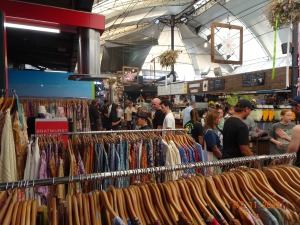
Clothes and more clothes and crowds.
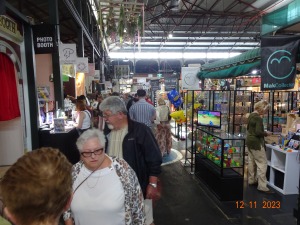
It didn’t take long for Maureen & I to have our fill of the market.
Walking past the closed shops I had to take this picture . . .mainly for Liverpool & Birkenhead readers.
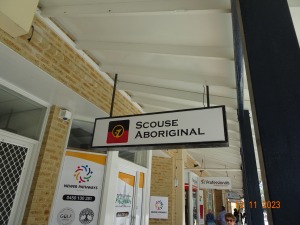
For those who may not know of the word Scouse is a name given to those born in and around Merseyside UK.
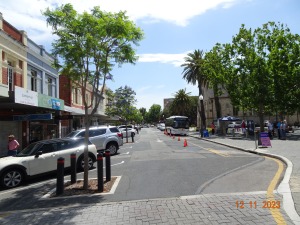
It was a short walk from the market to the area where we disembarked from our shuttle bus.
We wanted to see parts of the old town near St John’s Anglican church.
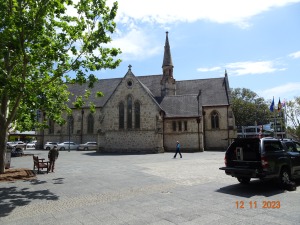
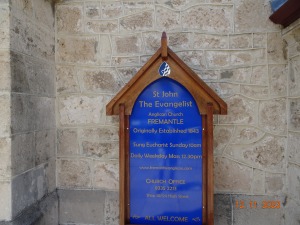
The current church is the second church on this site – the first being opened in 1843 and the current church was consecrated in 1882.
After we had walked around the outside of St John’s church, I saw a statue close to the Church and walked over to read the details.
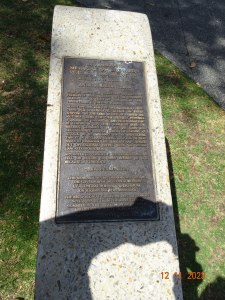
After reading the outline of Vice Marshall’s record I photograph the statue.
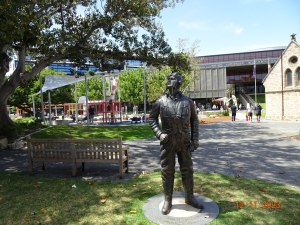 Air Vice Marshal
Air Vice Marshal
Hughie Idwal Edwards
The Air Vice Martial began his military life in the Royal Australian Air Force in 1935, and in 1936 was transferred to the RAF in the UK.
In April 1940 his war began –
4th July 1941 Distinguished Flying Cross
22nd July 1941 Awarded the Victoria Cross
8th January 1943 Distinguished Service Order
01 January 1945 Mentioned in Dispatches
and in peacetime . . . .
11th February 19 1947 Officer of the Order of the British Empire
11th January 1959 Companion of the Order of the Bath
01 July 1959 appointed as aide-de-camp to Her Majesty Queen Elizabeth II
8th October 1974 Knight Commander of the Order of St Michael and St George
1974 – 1975 Governor of Western Australia
For more details click the link below.
https://en.wikipedia.org/wiki/Hughie_Edwards
He became the most highly decorated Australian serviceman of WW2.
The Vice Marshall’s parent were Welsh, but he was born in Fremantle.
Idwal is Welsh for ‘Lord of the Wall’.
There is a small lake in the Snowden National Park in North Wales named Llyn Idwal. (Lake Idwal)
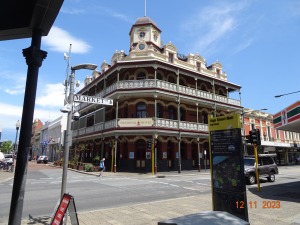
It was a pleasant sunny day to just wander around the quiet streets and the only shop that we saw open before 11.00 was the Australian Red Cross shop with a sign welcoming cruise passengers.

I took the above picture because of the old building – I liked it – I think it is called Higham’s Building.
The above picture with people on the left is the location of the Australian Red Cross – it was popular being the only shop open.
We met our friends and they had arranged a lovely lunch at their home.
Later they were kind enough to drive us back to the ship – after such a beautiful day the weather let us down as we approached the cruise ship.
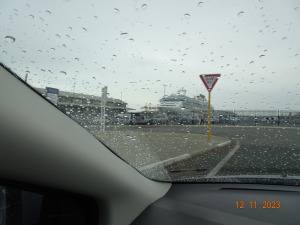
The delay in Geraldton due to bad weather Coral Princess was forced to cancel our visit to Busselton (Margaret River wine area) and Albany, which is close to being the southernmost tip of Western Australia, famous for being the last port of call for troops leaving Australia in WW1.
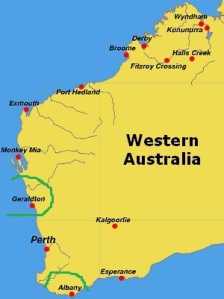
I have marked the two missed ports – our next port would be Adelaide the other side of the Great Australian Bight
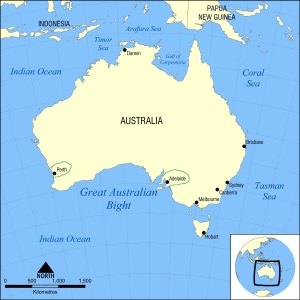
We sailed from Fremantle on the evening of the 12th of November and arrived in Adelaide on the morning of the 16th November.
Some might say that the days at sea were too long, but for me it brought back memories of the ‘cleanliness’ of the sea and the pleasure of the isolation in the vastness of the ocean.
Going to sea in the 1960’s without satellites, without the internet, without mobile phones, without I pads, without Google maps, without TV unless you were alongside in port – being at sea was ‘clean’- we navigated using a sexton,
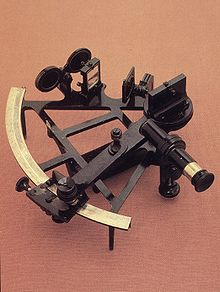
The basic concept hasn’t changed as to working out latitude.
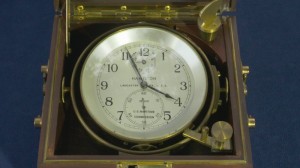
and thanks to John Harrison and his Chronometer we worked out our longitude.
As a cadet we read a lot, studied somewhat, and worked alongside the crew to learn as much as we could because one day, if we passed our exams, we would be a deck officer.
I do not know if the use of a sextant & chronometer is still taught to budding deck officers.





 The storm that we encountered was not as bad as the typhoon off Formosa (Taiwan), but overall, we found it very unpleasant. The above picture is a from the start of the typhoon, so I used it as an illustration.
The storm that we encountered was not as bad as the typhoon off Formosa (Taiwan), but overall, we found it very unpleasant. The above picture is a from the start of the typhoon, so I used it as an illustration.
